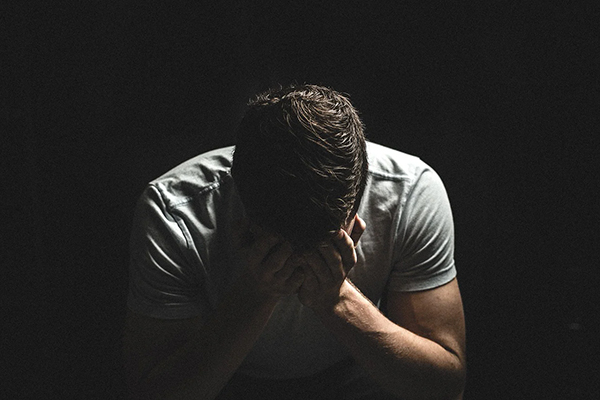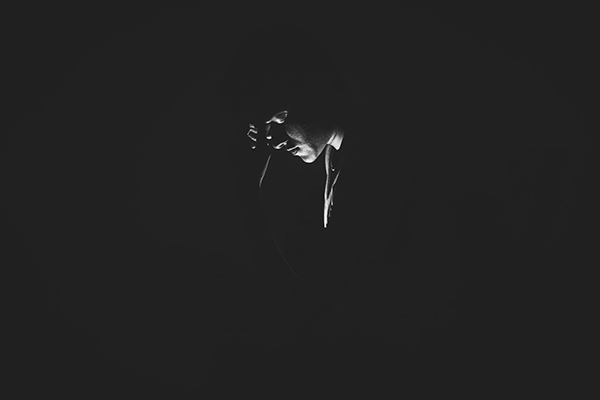Suddenly you begins to breathe agitatedly. Your hands tremble, sweat droplets run down his forehead. It is obvious from the hand carried to his chest that his heart is beating a thousand times an hour. How To Calm Down During A Panic Attack (Part I).

The picture is more common than you think, hardly a day goes by without a case being recorded.
Consultations with the emergency services testify to this. These are the so-called panic attacks, or crisis of anguish, as specialists prefer to call it.
In fact, they themselves believe that these crises have become the “vedette” of anxiety disorders.
“There is a true crisis epidemic of this type, we prefer to call it a crisis of anguish, although the North American name panic attack has become popular,” says psychiatrist Pedro Bustelo, technical director of the Cazabajones Foundation.
The word panic has its origin in a god of the Greek pantheon. The god Pan, represented in Roman mythology as a faun, enjoyed provoking fear among mortals.
He was considered the god of shepherds and flocks. He lived in the woods, was a hunter, healer and musician, instilled fear in the men who entered the forest.
A panic attack is a short period of intense anxiety or fear – usually lasting no more than 10 minutes – during which a person experiences several of the following symptoms: palpitations, sweating, tremors, shortness of breath or choking sensation, chest pain, nausea, dizziness, chills, cramps, fear of going crazy, fear of sudden death.
It’s one of the Most Common Disorders
“It’s one of the most common disorders, anyone is exposed to one,” says Bustelo.
In fact, anyone who smokes marijuana is likely to experience a seizure of this type, and those who use cocaine may also experience a similar disorder.
“In an attack, it occurs as a sudden outflow of an enormous amount of accumulated nerve energy, which may be nothing more than accumulated stress. It is very common in teenagers, or in people exposed to large crowds.
Social networks are also very influential, especially when they produce bullying phenomena, which can have consequences so serious that they end up in suicide.
We have had a real peak of adolescent suicide, with cases of boys between 15 and 20 years old, last year we had 709,” says the psychiatrist.
What to do when a Person goes through a Crisis like this?

“It’s important to try to reassure them. If we observe that the person suffering from the attack is hyperventilating, we have to try to make it go at a slower pace, hyperventilation increases the acid in the blood and feeds back the disorder.
So breathing quietly alkalinizes the blood and ends up acting like a natural tranquilizer,” explains Bustelo.
“Another trick widely used by stewardesses in the face of a panic attack is to use the paper bag and ask the person to breathe in, so they exhale carbon monoxide and inspire it, this also acts as a natural tranquilizer,” he adds.
And, of course, call the medical emergency for an immediate consultation.
Panic attacks Can Not be Predicted
Panic attacks cannot be predicted. At least in the early stages of the disorder, there’s no trigger to make it emerge.
The memory of a past attack can trigger panic attacks, and rarely is there an objective cause.
“There are two types of fears that appear in an attack. The first is that something is happening to your heart, you may even feel a sense of impending death.
And the second is to feel like you’re going crazy, that you’re losing your mind, that the thing is getting out of control.
It’s good to know that a panic attack can never cause madness,” the specialist adds.
Keys to a Common Disorder

Typical symptoms for recognizing a panic attack or anxiety crisis are: palpitations (tachycardia), sweating, tremors, shortness of breath or choking sensation, chest pain, nausea or vomiting, dizziness or fainting, chills or hot flashes, numbness, tingling, difficulty swallowing, dezonalization or feeling of unreality, fear of dying, fear of going crazy.
What can cause a Panic Attack?
Although in most cases it occurs for no apparent reason, there are some factors at play.
Particularly high levels of daily anxiety, hereditary tendencies, exaggerated reactions to threats, catastrophic interpretation of normal bodily sensations, the perception of lack of control in daily acts, are some of the possible causes.
Keys to Understanding this Disorder

Keys to understanding this disorder include, for example, the family environment.
Experts believe that there is a genetic predisposition, especially if one of the parents has suffered from bipolarity.
It is common that before arriving at the psychiatric consultation those suffering from panic attacks have had all kinds of check-ups for some time. Breathing is the key to overcoming it.
For further information you can visit:
Maybe you are also looking for:



